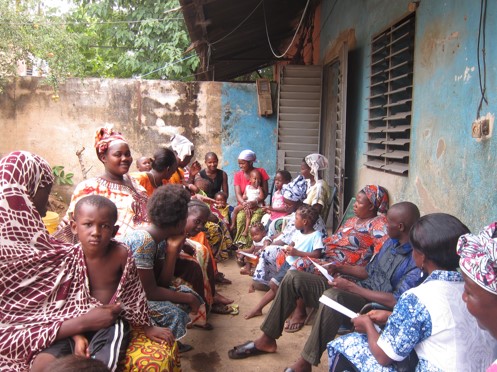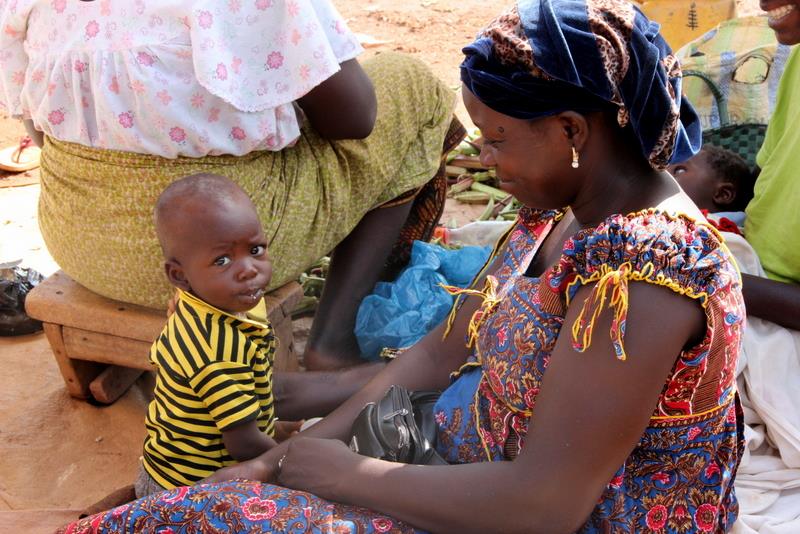By educating mothers in West Africa on how to best access care for their children, Pesinet is helping them save money and lives.
Why we care: In Burkina Faso and Mali, 1 out of 7 children die before the age of 5, most of them from illnesses that could be easily prevented or cured if treated at an early stage.
How we are resolving this: By giving mothers the education they need to make informed decisions about their children’s health, we enable them to save money and sometimes even the life of their child.

Many mothers in the areas where we work lack the education and information they need to access the best care for their children. Illiteracy among adult women is as high as 80%. Many women work seven days in the marketplace selling vegetables for small change.
With little time or money to spare, and limited knowledge of modern medicine, they are easily duped into buying ineffective “street medications” for their children in order to save money. Others simply ignore crucial symptoms, hoping their child’s illness will pass. Although health centers are geographically accessible and affordable, many mothers are too intimidated to take their child in for a consultation.
Treatment for malaria, diarrheal diseases, and respiratory infections–the illnesses responsible for 60% of deaths among young children–are locally available and affordable even to the poor.
But when these illnesses are caught at a late stage, they require expensive urgent care or may even be untreatable.
Funding from this project will help us sponsor 234 health talks with approximately 2,800 mothers in urban and fringe communities in Bamako and Ouagadougou and potentially protect the lives of 3,000 children.
Through our health talks, we provide mothers the information and tools they need to make smart decisions about when and how to access care. We also teach them how to recognize key symptoms, how to maintain good household hygiene, and how best to prevent illnesses in the family, so that they can keep their babies healthy and their savings boxes full.
Our health monitoring agents–local women from the community–regularly visit families enrolled in our program. We train these women to lead by example in their daily work, encouraging simple changes like hand-washing and sleeping under mosquito nets, or informing mothers of the nutritional importance of breast-feeding for their babies. The agents can also help mothers understand prescriptions or the instructions on medications.


